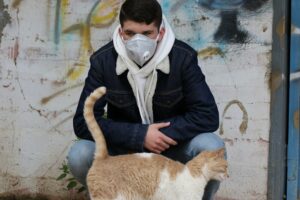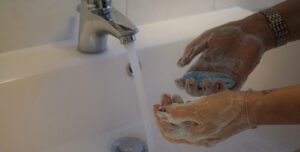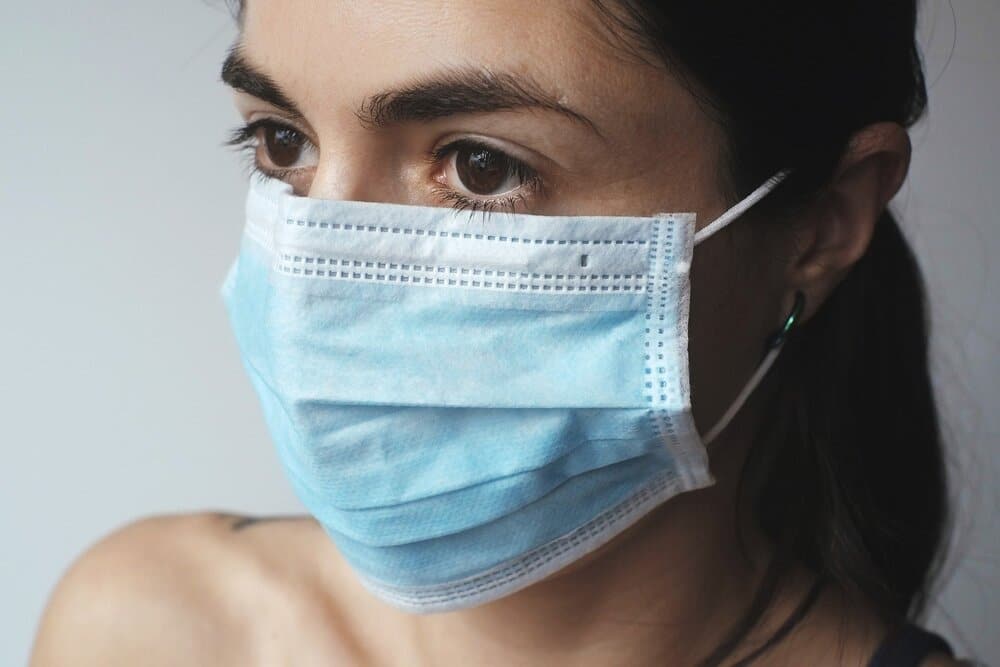By David Saunders | UPDATED: 11:28, 28 March 2020
Some of the questions you may well want answers on regarding the disease outbreak spreading across the world
What does the name coronavirus mean?
The name comes from the Latin Corona, meaning “crown” or “halo”, Corona refers to the characteristic appearance reminiscent of a crown or a solar corona.
When was Coronavirus first discovered?
The earliest ones were discovered in chickens and two in human patients (an infectious bronchitis type virus), with the common cold (later named human coronavirus 229E and human coronavirus OC43) in the late sixties.
Other members of this family have since been identified, including SARS-CoV in 2003, that infected around 8,000 people and killed about 800 but it very quickly ran itself out, largely because most of those infected were seriously ill so it was easier to control.
HCoV NL63 in 2004, HKU1 in 2005, MERS-CoV in 2012, and SARS-CoV-2 (formerly known as 2019-nCoV) in 2019 now being called Covid-19 is closely related to severe acute respiratory syndrome (Sars) which swept around the world in 2002 to 2003. Most of these have involved serious respiratory tract infections.
Where did the coronavirus come from?
Coronaviruses are a family of viruses that cause disease in animals. Seven, including the new virus, have made the jump to humans, with most of them just causing cold-like symptoms.
How is coronavirus spread?
Like most viruses they are mainly spread via close contact with others already having contracted the virus. Coughing, sneezing and through respiratory droplets produced during breathing and talking to someone in close proximity to you, but the virus is not considered airborne.
People may also be able to catch COVID-19 by touching a contaminated surface and then by touching their face, the virus can live on surfaces up to 72 hours
The Coronavirus is most contagious when people are symptomatic, although it may be possible to pass on before any symptoms appear. Time from exposure to onset of symptoms is generally between two and fourteen days, with an average of five days.
Can COVID-19 be passed on from my pet?
No. Whilst there has been one instance of a dog being infected in Hong Kong, to date, there is no evidence that any pet can transmit COVID-19. COVID-19 is mainly spread through droplets produced when an infected person coughs, sneezes, or speaks.
WHO continues to monitor the latest research on this and other COVID-19 topics and will update as new findings are available.

Is COVID-19 airborne?
The virus that causes COVID-19 is mainly transmitted through droplets generated when an infected person coughs, sneezes, or speaks. Droplets are too heavy to hang in the air. They quickly fall on floors or surfaces.
You can be infected by breathing in the virus if you are within 1 metre of a person who has COVID-19, or by touching a contaminated surface and then touching you eyes, nose or mouth before washing your hands.
What coronavirus does to you
In Mild Cases of the virus this is all most people will experience.
For eight out of 10 people Covid-19 is a mild infection, those who get it the core symptoms are a fever and a cough. Body aches, sore throat and a headache are all possible, but not guaranteed.
A fever, and generally feeling rough, is the result of your immune system responding to the virus. The cough is initially a dry one (you’re not bringing stuff up) and this is probably down to irritation of cells as they become infected by the virus.
Some people will eventually start coughing up sputum – a thick mucus containing dead lung cells killed by the virus.
These mild case symptoms are treated with bed rest, plenty of fluids and paracetamol. You won’t need to sort any specialist hospital care. Mild cases the point most recover at is within a week because their immune system has fought off the virus.
-
A dry cough
-
A temperature
-
Tiredness/lethargy
However, some will develop a more serious form of Covid-19.
In Severe cases
If your symptoms last longer than a week with the virus progressing it will be due to the immune system overreacting to the virus.
Speaking to BBC News Dr Nathalie MacDermott, from King’s College London said:
“Too much inflammation can cause collateral damage throughout the body. The virus is triggering an imbalance in the immune response, there’s too much inflammation, how it is doing this we don’t know,” said Inflammation of the lungs is called pneumonia.”
“If it was possible to travel through your mouth down the windpipe and through the tiny tubes in your lungs, you’d eventually end up in tiny little air sacs.”
“This is where oxygen moves into the blood and carbon dioxide moves out, but in pneumonia the tiny sacs start to fill with water and can eventually cause shortness of breath and difficulty breathing.”
Some people will need a ventilator to help them breathe.
This stage is thought to affect around 14% of people, based on data from China.
Critical disease
By this point the body is starting to fail and there is a real chance of death. It is estimated around 6% of cases become critically ill.
The problem is the immune system is now spiralling out of control and causing damage throughout the body. It can lead to septic shock when the blood pressure drops to dangerously low levels and organs stop working properly or fail completely.
Acute respiratory distress syndrome caused by widespread inflammation in the lungs stops the body getting enough oxygen it needs to survive. It can stop the kidneys from cleaning the blood and damage the lining of your intestines.
“The virus sets up such a huge degree of inflammation that you succumb… it becomes multi-organ failure,” Dr Bharat Pankhania said.
And if the immune system cannot get on top of the virus, then it will eventually spread to every corner of the body where it can cause even more damage.
Eventually the damage can reach fatal levels at which organs can no longer keep the body alive.

How can I limit my risk of contracting coronavirus
To prevent infection and to slow transmission of COVID-19, do the following:
-
Wash your hands regularly with soap and water, or clean them with alcohol-based hand rub.
-
Maintain at least 1 metre distance between you and people coughing or sneezing.
-
Avoid touching your face.
-
Cover your mouth and nose when coughing or sneezing.
-
Stay home if you feel unwell.
-
Refrain from smoking and other activities that weaken the lungs.
-
Practice physical distancing by avoiding unnecessary travel and staying away from large groups of people.
The use of masks is recommended by some national health authorities for those who suspect they have the virus and their caregivers, but not for the general public, although simple cloth masks may be used by those who desire them.[
You can reduce your chances of being infected or spreading COVID-19 by taking some simple precautions:
Are there any medicines or therapies that can prevent or cure COVID-19?
No, there isn’t any vaccine or specific antiviral treatment for COVID-19. While some western, traditional or home remedies may provide comfort and alleviate symptoms of COVID-19, there is no evidence that current medicine can prevent or cure the disease.
The World Health Organisation (WHO) does not recommend self-medication with any medicines, including antibiotics, as a prevention or cure for COVID-19.
However, there are several ongoing clinical trials that include both western and traditional medicines. WHO will continue to provide updated information as soon as clinical findings are available.
How long does the virus survive on surfaces?
It is not clear how long the virus that causes COVID-19 survives on surfaces, but it seems to behave like other coronaviruses. Studies suggest that coronaviruses may persist on surfaces for a few hours or up to several days depending on surface. This may vary under different conditions (e.g. type of surface, temperature or humidity of the environment).
If you think a surface may be infected, clean it with simple disinfectant to kill the virus and protect yourself and others. Clean your hands with an alcohol-based hand rub or wash them with soap and water. Avoid touching your eyes, mouth, or nose as much as possible.
